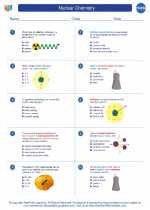Thyroid
The thyroid is a small, butterfly-shaped gland located in the front of the neck, just below the Adam's apple. It is an important part of the endocrine system and plays a crucial role in regulating metabolism, growth, and energy levels in the body. The thyroid gland produces hormones, primarily thyroxine (T4) and triiodothyronine (T3), which control how the body uses energy, makes proteins, and responds to other hormones.
Functions of the Thyroid
The thyroid gland regulates various bodily functions, including:
- Metabolism: The thyroid hormones control the rate at which the body burns calories and uses energy.
- Growth and Development: Thyroid hormones are essential for normal growth and development, particularly in children.
- Regulation of Body Temperature: The thyroid helps maintain the body's temperature within a normal range.
- Heart Rate: Thyroid hormones can affect heart rate and rhythm.
Common Thyroid Disorders
Thyroid disorders can occur when the thyroid gland produces too much or too little hormone. The most common disorders include:
- Hypothyroidism: This occurs when the thyroid gland does not produce enough thyroid hormone, leading to symptoms such as fatigue, weight gain, and cold sensitivity.
- Hyperthyroidism: In this condition, the thyroid gland produces an excess of thyroid hormone, resulting in symptoms such as rapid heart rate, weight loss, and heat intolerance.
- Thyroid Nodules: These are lumps or growths in the thyroid gland that can be benign or, in some cases, cancerous.
Thyroid Function Tests
Diagnosing thyroid disorders often involves blood tests to measure levels of thyroid hormones such as T4 and T3, as well as thyroid-stimulating hormone (TSH), which is produced by the pituitary gland and regulates the thyroid's hormone production.
Summary
The thyroid gland is a vital component of the endocrine system, playing a key role in regulating metabolism, growth, and energy levels. Understanding its functions and common disorders is crucial for maintaining overall health and well-being.
Study Guide
When studying the thyroid, it's important to focus on the following key areas:
- Functions of the thyroid gland
- Common thyroid disorders and their symptoms
- Diagnostic tests for thyroid function
- The relationship between thyroid hormones and overall bodily functions
Additionally, familiarize yourself with the anatomical location of the thyroid gland and its role in the endocrine system.
Understanding the thyroid and its functions can help in recognizing and addressing potential thyroid disorders, ultimately contributing to better overall health.
[Thyroid] Related Worksheets and Study Guides:
.◂Chemistry Worksheets and Study Guides High School. Nuclear Chemistry

 Worksheet/Answer key
Worksheet/Answer key
 Worksheet/Answer key
Worksheet/Answer key
